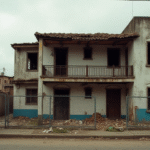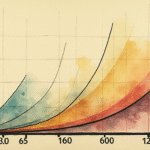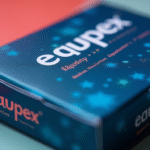Background on FOVISSSTE and its Social Mission
The Fondo de la Vivienda (FOVISSSTE) is a Mexican housing credit program managed by the Instituto de Seguridad y Servicios Sociales de los Trabajadores del Estado (ISSSTE). For nearly two decades, FOVISSSTE has been unable to construct new homes. However, under the leadership of ISSSTE’s Director General, Martí Batres Guadarrama, the program is set to resume housing construction in 2025, focusing on low-income workers who struggle to secure housing through traditional credit markets.
FOVISSSTE Resumes Construction and Aids Workers
During an event at ISSSTE headquarters, Martí Batres announced that FOVISSSTE will start building homes again in the Ciudad de México, targeting those with lower incomes. He emphasized that not everyone can access conventional housing credits, forcing them to seek alternative solutions. The resumption of construction will occur under the Second Pillar of the Fourth Transformation, led by President Claudia Sheinbaum Pardo.
Addressing Housing Challenges
Batres highlighted the difficulties faced by workers trying to secure housing with limited credit options. He explained that a 400,000-peso credit may not be sufficient when market engagement costs reach a million pesos, pushing individuals to look for housing options in distant locations.
FOVISSSTE’s Social Initiatives
Jabnely Maldonado Meza, the Executive Vice President of FOVISSSTE, outlined the Fondo de la Vivienda’s efforts to regain its social character. These initiatives include programs that facilitate credit liquidation for hipotecary loans and strategies to ensure housing rights for state-employed workers.
Credit Redesign and Social Focus
Maldonado Meza stressed that the FOVISSSTE credits, originally designed with a financial logic, need to incorporate a social perspective. This shift aims to provide state employees access to housing and property rights, making the Fondo de la Vivienda a social instrument rather than just a financial one.
Beneficiaries Express Gratitude
Claudia López Martínez, representing FOVISSSTE beneficiaries who received finiquito, expressed her relief after learning of a 780,829-peso debt reduction. This development allowed her to finally be free of her problematic debt burden.
Medical Equipment Upgrades at UMF “Tlalpan”
Martí Batres also visited the Unidad de Medicina Familiar (UMF) “Tlalpan,” which serves 71,452 rightsholders. There, he supervised ongoing roofing, handrail, and ramp construction projects as well as the acquisition of medical equipment funded by the “La Clínica es Nuestra” program. The UMF received 1,100,000 pesos to purchase:
- 40 glucose meters
- 40 pulse oximeters
- 10 high-speed handheld devices
- 10 low-speed handheld devices
- 40 infrared thermometers
- 21 digital blood pressure manometers
- One wooden bench
- Three Chaise lounges for gabinete
- Three universal exploration tables
- 18 glucose meter reaction strips
- Nine lancets for glucose meters
- Two electrocardiographs
Additionally, the CMF will receive scales, mini-splits for X-ray rooms, cladding, dental service mirrors, and surveillance cameras.
Permanent Credential Issuance for Pensioners and Retirees
At the Administrative Unit of Economic Benefits Number 2 in the South Regional Delegation, Martí Batres symbolically presented a permanent validity credential to one of the 350 pensioners and retirees who will no longer need to refrend their credentials every two years.
Enhancing Right Exercising Process
The ISSSTE Director General emphasized that these actions aim to simplify the exercise of permanent rights for pensioners and retirees, ensuring a more humane and dignified treatment across the nation.
Key Questions and Answers
- What is FOVISSSTE? The Fondo de la Vivienda (FOVISSSTE) is a Mexican housing credit program managed by the Instituto de Seguridad y Servicios Sociales de los Trabajadores del Estado (ISSSTE).
- Why did FOVISSSTE stop building homes? Due to various reasons, including financial constraints and policy changes, FOVISSSTE was unable to construct new homes for almost two decades.
- Who will benefit from the resumed construction? The newly constructed homes will primarily benefit low-income workers who struggle to secure housing through traditional credit markets.
- What medical equipment was acquired for UMF “Tlalpan”? The clinic received glucose meters, pulse oximeters, high- and low-speed handheld devices, infrared thermometers, digital blood pressure manometers, a wooden bench, Chaise lounges, exploration tables, glucose meter reaction strips, lancets, and electrocardiographs.
- What changes were implemented for pensioners and retirees? Pensioners and retirees will now receive permanent validity credentials, eliminating the need to refrend their credentials every two years.






